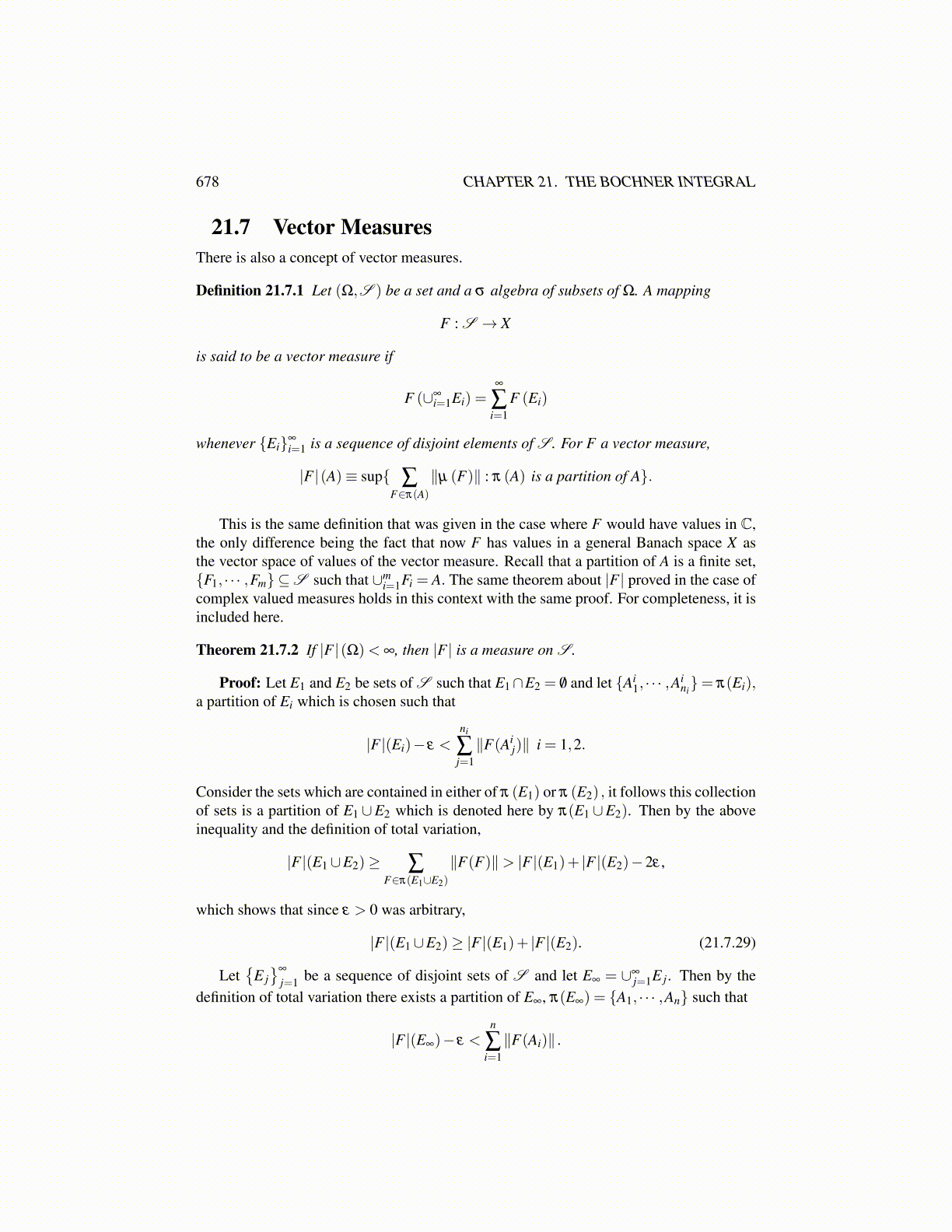
678 CHAPTER 21. THE BOCHNER INTEGRAL
21.7 Vector MeasuresThere is also a concept of vector measures.
Definition 21.7.1 Let (Ω,S ) be a set and a σ algebra of subsets of Ω. A mapping
F : S → X
is said to be a vector measure if
F (∪∞i=1Ei) =
∞
∑i=1
F (Ei)
whenever {Ei}∞
i=1 is a sequence of disjoint elements of S . For F a vector measure,
|F |(A)≡ sup{ ∑F∈π(A)
∥µ (F)∥ : π (A) is a partition of A}.
This is the same definition that was given in the case where F would have values in C,the only difference being the fact that now F has values in a general Banach space X asthe vector space of values of the vector measure. Recall that a partition of A is a finite set,{F1, · · · ,Fm} ⊆S such that ∪m
i=1Fi = A. The same theorem about |F | proved in the case ofcomplex valued measures holds in this context with the same proof. For completeness, it isincluded here.
Theorem 21.7.2 If |F |(Ω)< ∞, then |F | is a measure on S .
Proof: Let E1 and E2 be sets of S such that E1∩E2 = /0 and let {Ai1, · · · ,Ai
ni}= π(Ei),
a partition of Ei which is chosen such that
|F |(Ei)− ε <ni
∑j=1∥F(Ai
j)∥ i = 1,2.
Consider the sets which are contained in either of π (E1) or π (E2) , it follows this collectionof sets is a partition of E1 ∪E2 which is denoted here by π(E1 ∪E2). Then by the aboveinequality and the definition of total variation,
|F |(E1∪E2)≥ ∑F∈π(E1∪E2)
∥F(F)∥> |F |(E1)+ |F |(E2)−2ε ,
which shows that since ε > 0 was arbitrary,
|F |(E1∪E2)≥ |F |(E1)+ |F |(E2). (21.7.29)
Let{
E j}∞
j=1 be a sequence of disjoint sets of S and let E∞ = ∪∞j=1E j. Then by the
definition of total variation there exists a partition of E∞, π(E∞) = {A1, · · · ,An} such that
|F |(E∞)− ε <n
∑i=1∥F(Ai)∥ .